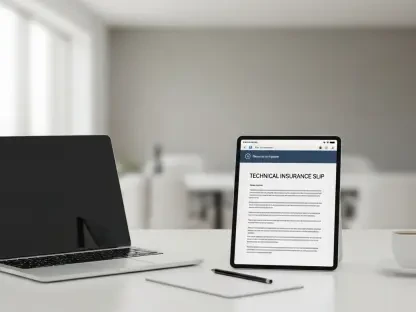The insurance industry is facing new challenges due to recent tariffs implemented by the United States, which are creating significant ripple effects across global markets. These changes are directly affecting claims management processes by disrupting supply chains and escalating material costs. As tariffs on goods like lumber, steel, vehicle parts, and electronics come into play, property and auto insurance claims become increasingly arduous to resolve. This scenario underlines the heightened vulnerability and economic uncertainty confronting the insurance sector as it grapples with these issues. The increased cost and delayed availability of essential materials influence the efficiency and expense of settling claims, revealing deeper complexities within the industry.
Trade Policies and the Claims Sector
Recent tariffs imposed by the US government have far-reaching implications for insurance claims management, causing substantial disruptions across supply chains worldwide. Lumber, steel, and electronics—key materials critical for claims resolution—are seeing increased costs and procurement delays. These difficulties are exacerbated by the cascading effects of global trade policies, prolonging settlement times and adding to overall expenses. The trade policies are revealing a complex interconnectedness among international markets, where the US tariffs provoke responses from other regions, each with its reciprocal trade measures. This global economic interplay highlights an intricate scenario where insurers need to prepare for potential disruptions and volatile international trade responses that can further alter the landscape.
The interconnectedness of global supply chains means that even isolated tariff changes in one country can have worldwide repercussions. In the insurance sector, this means that claims processes are becoming more challenging, demanding that insurers adapt swiftly to manage increased costs and delays. This situation is compounded by reciprocal actions from affected countries, leading to unpredictable fluctuations in material availability and pricing. As international trade systems adjust, insurers must brace for an evolving set of challenges, maintaining a proactive stance to effectively navigate through these uncertain waters. The impact of these trade policies is not limited to one region, but reverberates globally, causing insurers to rethink strategies and anticipate far-reaching economic changes.
Challenges in Claims Resolution
The imposition of new tariffs brings about significant operational challenges for insurance companies, most notably in claims resolution. Tariff-related delays lead to prolonged claim cycles, increasing exposure to costs linked with business interruptions and temporary accommodations and notably affecting the commercial and industrial sectors. Insurers find themselves battling dual challenges: higher operational overhead and the critical need to uphold transparent communication with policyholders. Effective dialogue with clients becomes essential for managing expectations and upholding trust during extended periods of claim resolution, which can become fraught with complications due to these tariff-induced delays.
Navigating these challenges requires insurance companies to enhance both operational efficiency and client communication strategies. The elongated claim periods elevate operational costs, forcing insurers to find new pathways to remain economically viable while managing client relations diligently. Transparency in communication with clients during these phases is paramount, as it helps maintain trust and manage expectations despite extended wait times and heightened costs. The mounting challenges necessitate a shift toward innovative solutions, balanced with effective communication techniques, ensuring claims are processed with precision while maintaining client satisfaction and trust in the insurer’s capabilities during such disruptive conditions.
The Economic Interplay
The evolving scenario of tariffs and their interaction with fluctuating currency rates introduces additional hurdles for the insurance industry. The delicate balance between trade policies and currency changes can either intensify or alleviate the impact of material costs, presenting a multifaceted challenge for insurers. As nations modify their trade and economic measures to respond to tariffs, the resultant currency fluctuations necessitate an agile approach from insurance companies to adapt strategically. This complexity underscores the need for insurers to remain nimble and responsive to not only tariff-induced changes but also the nuanced effects of currency variations on their overall cost structures.
Unlike disruptions caused by events beyond human control, such as pandemics, the current challenges involve tactical decisions by governments that affect insurers directly. The interplay of tariffs and currency variations demands that insurers employ strategic foresight to mitigate the potential financial implications of these shifts accurately. Ensuring a responsive approach to these changes promotes adaptability and resilience in navigating the uncertain global economic landscape. Insurers must remain vigilant and proactive as they strategize ways to overcome economic barriers stemming from this complex interplay of trade policies and currency changes, ultimately refining their claims management processes to accommodate evolving economic conditions.
Industry Response and Collaboration
In response to these evolving challenges, insurance firms like Crawford & Company are leading the charge to address the multifaceted issues presented by recent tariff changes. By convening forums and roundtables with industry leaders, they are facilitating crucial dialogue aimed at mitigating risks associated with prolonged trade tensions. These collaborative efforts form a foundation for developing innovative strategies to address the disruptions within claims management, fostering a comprehensive understanding and adaptation among industry stakeholders that strengthens the overall resilience of the insurance sector.
The industry currently stands in a phase of assessment and monitoring, gathering critical insights to navigate through these uncertainties effectively. Continuous engagement with stakeholders remains key to adapting successfully to the volatile economic environment. As insurers work together to devise strategies and share knowledge, the industry as a whole bolsters its ability to cope with the implications of sustained trade disruptions. These collaborative approaches provide a platform for insurers to refine their methods, enhancing the industry’s capacity to adapt to changes, ensuring that firms remain prepared for future challenges within the global economic landscape.
Insights and Adaptation
The insurance industry is currently navigating complex challenges brought on by recent U.S. tariffs, which are sending shockwaves through global markets. These economic shifts significantly impact claims management, as disrupted supply chains and rising material costs pose hurdles. Newly imposed tariffs on essential goods such as lumber, steel, auto parts, and electronics complicate the resolution of property and automobile insurance claims. These developments highlight the increased vulnerability and economic unpredictability facing the insurance sector. The rising costs and scarcity of crucial materials essential for repairs and replacements prolong resolution times and drive up the expense of processing claims, unveiling intricate problems within the industry. Such conditions necessitate not only greater resourcefulness in claims management but also strategic adaptations to mitigate the effects of these tariffs, ensuring timely and cost-effective solutions in a continuously evolving economic landscape.









